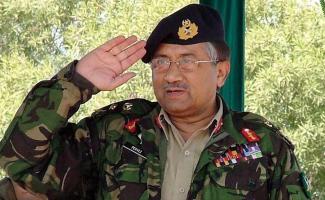Pakistan
Ex-dictator sentenced to death

In 1999, General Musharraf deposed then Prime Minister Nawaz Sharif in a military coup and ruled the country for almost a decade. His conviction last year for high treason relates not to the initial coup but to a series of unconstitutional actions towards the end of his rule. These actions included the declaration of an illegal emergency, an unparalleled purge of almost 60 judges from the higher courts and various damaging amendments to the constitution, which were then rubberstamped by a handpicked judiciary. Musharraf’s primary motive was to prevent the courts from ruling against him serving as top military leader and head of state at the same time.
Musharraf was later tried by a special court set up in 2013 by the erstwhile Chief Justice, Iftikhar Chaudhry, on the directions of Nawaz Sharif, who became prime minister again after winning a general election earlier that year.
The special court delivered its verdict in December 2019. It is based on article 6 of the constitution which creates the offence and defines who is guilty of “high treason”. The offence applies to “any person who abrogates or subverts or suspends or holds in abeyance” the constitution or conspires to do so “by use of force or show of force or by any other unconstitutional means”. Article 6 carries the gravest penalties of death or life imprisonment.
Musharraf’s conviction is the first ever enforcement of article 6 since the making of the constitution in 1973. The first dictator to suspend this constitution was General Zia-ul-Haq in 1977, but he died in a plane crash a decade later. Hence, article 6 remained dormant.
Chief Justice Chaudhry, who created the special court to try Musharraf, had been the central figure in the conflict between the Musharraf regime and the judiciary. Musharraf had removed him arbitrarily from the post in 2007, sparking what has come to be known as the “Lawyers’ Movement”. Members of the legal community came out on the streets to demand that the decision be reversed. They found broad support in political parties and civil society. Indeed, protests became so forceful that they led to a general election, followed by Musharraf’s resignation, in 2008. For the next five years, Pakistan was governed through a coalition led by the Pakistan People’s Party, which then lost the 2013 general election to Sharif’s Muslim League.
In December 2019, after a long-drawn trial that was deliberately obstructed and delayed by Musharraf’s defence team, the special court convicted him in a 2:1 split verdict. The court sentenced Musharraf to death.
However, the death sentence is not likely to be implemented as Musharraf fled the country in 2016 on the pretext of medical issues. Even if he were in Pakistan, the sentence would almost certainly be overruled because of the politically sensitive nature of the case. Moreover, Prime Minister Imran Khan, who won the most recent 2018 election, is closely aligned with the military establishment. His government’s influence can be seen in the latest High Court judgement that has swiftly declared that the special court was illegally constituted.
This back and forth is not surprising. Pakistan’s history shows that democratisation is not a linear process, and that judicial contestations do not always deliver unequivocal results. Nonetheless, the conviction for treason is undoubtedly of very high political significance, and not least because the country has witnessed direct military rule for roughly half its existence.
Three points of significance
The most obvious significance of the verdict is that it sets a high precedent for the accountability of coup-makers. So far, only military strongmen have perpetrated actions that constitute treason – namely, abrogation, subversion or suspension of the constitution. Therefore, the verdict is a strong signal against the military’s political adventurism. Regardless of whether the judgement is ultimately upheld, it raises the stakes for would-be dictators in the future. Moreover, it also raises the stakes for other “aiders”, “abettors” and “collaborators” of coup-makers under article 6. In this sense, legitimising coups has also become risky business for judges, as well as other actors, who collaborate with military dictators. Hence, the verdict is self-limiting for the judiciary in a positive way.
The verdict is also important for reasserting the supremacy of the constitution, which the military has often denigrated in the past. It is deeply ironic that Musharraf’s legal team is now demanding a fair trial, due process and personal civil rights on the basis of the very constitution the ex-dictator himself once trivialised as “a piece of paper to be thrown into the dustbin”. This shows a gradual shift in constitutional norms, particularly towards compelling the military to act within the formal process of the law.
Another point of institutional significance relates to the judiciary’s relationship with the military. Historically, Pakistani courts have tended to collaborate with military dictators, but their capacity to fight back has grown over the past decade, especially since the above-mentioned Lawyers’ Movement. By resisting military authoritarianism, the movement allowed Pakistan’s Supreme Court to insulate itself from external interference in crucial decisions, including the appointment of higher court judges. The courts can potentially draw on the support of the legal community again in any future conflict between the judiciary and the military. Musharraf’s conviction shows that, in moments of institutional strength, the judiciary indeed has a growing appetite to assert itself against the military top brass.
Maryam S. Khan is a research fellow at the Institute of Development & Economic Alternatives (IDEAS), a non-governmental think tank based in Lahore.
Twitter: @MaryamShKhan













